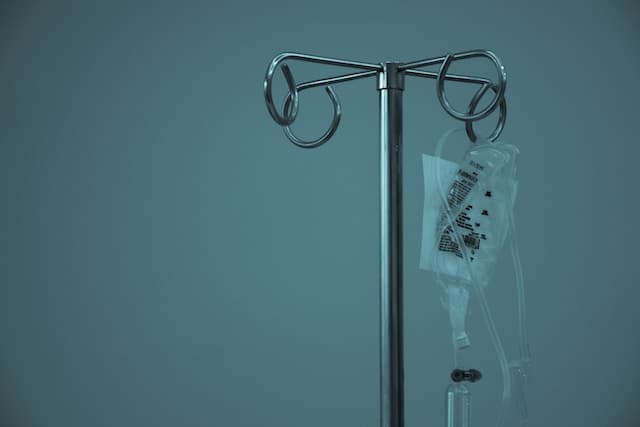Understanding the children’s billing process is crucial for parents navigating the complex world of healthcare. As parents, it’s essential to have a comprehensive knowledge of how medical childrens billing works to ensure that your child’s healthcare needs are met efficiently and financially. By familiarizing yourself with the steps involved, you can make informed decisions and advocate for your child’s well-being.
Today, we will delve into the various aspects of childrens billing and coding. Additionally, we will explore how to choose the right children’s hospital, payment options available, and the potential impact of medical bills on your credit.
The Steps in Childrens Billing Process

Medical billing involves an entire process from patient registration to receiving payment, let’s have a look at what steps it entails.
Registration and Providing Necessary Information
During the registration process, parents or guardians provide essential information about their child, such as personal details and insurance coverage. This information is crucial for accurately identifying the patient and ensuring the correct childrens billing procedures.
Medical Coding
Medical coding is a standardized system used to translate medical procedures, diagnoses, and treatments into alphanumeric codes. These codes play a vital role in accurately describing the services rendered to a child and facilitating the childrens billing process. Proper coding ensures that the services provided are properly documented and billed.
Claims Submission and Processing
After medical services are provided to a child, healthcare providers prepare and submit claims to the relevant insurance companies. This step involves compiling all the necessary documentation, including medical records and supporting records, and submitting them for reimbursement.
Ready to learn how billing process works? Your journey begins when you click the button.
Insurance companies then process the claims, reviewing the documentation and verifying the coverage and eligibility for reimbursement.
Explanation of Benefits (EOB)
The Explanation of Benefits (EOB) is a document provided by the insurance company to the policyholder. It explains the details of the services rendered, the charges incurred, the coverage provided, and the patient’s financial responsibility. Understanding the EOB is essential for parents to comprehend the expenses and determine their financial obligations.
Reimbursement
Reimbursement is the process through which healthcare providers receive payment for the services provided to a child. Once the insurance company processes the claim and determines the eligible reimbursement amount, the provider will receive payment.
Parents may be responsible for paying any remaining balance not covered by insurance. Payment collection involves various methods, such as direct payment to the provider, online payment portals, or installment plans.
Evaluating Children’s Hospitals

Choosing the right children’s hospital is vital for your child’s healthcare. Let’s have a look at the list of factors to consider when evaluating children’s hospitals, including their reputation, quality of care, specialized services and facilities, and proximity and convenience for parents.
Reputation and Quality of Care
When choosing a children’s hospital, considering the reputation and quality of care is crucial. Parents want the best possible care for their children. A hospital’s reputation speaks volumes about its expertise and patient outcomes. It’s important to research the hospital’s track record, including its rankings, awards, and patient reviews.
Additionally, factors such as accreditation, specialized pediatric programs, and collaboration with renowned healthcare professionals can indicate the quality of care provided.
Specialized Services and Facilities
Children may require specialized medical services and facilities, depending on their unique healthcare needs. When evaluating children’s hospitals, it’s important to assess the range of specialized services they offer. This can include areas such as pediatric surgery, oncology, cardiology, neurology, and more.
The presence of specialized programs, advanced technology, and dedicated pediatric specialists ensures that children receive comprehensive and tailored care for their specific conditions.
Proximity and Convenience for Parents
Proximity and accessibility are essential considerations for parents when selecting a children’s hospital. Having a hospital close to home can be advantageous, especially for routine check-ups, follow-up appointments, and emergencies. Being near the hospital reduces travel time and can provide a sense of security.
Additionally, hospitals with convenient parking facilities, public transportation access, and accommodations for families can greatly alleviate the stress and logistical challenges faced by parents during their child’s medical visits or hospital stays.
Can You Pay Children’s Medical Bills Online?

In this digital age, online payment methods have become increasingly popular. Good news is that it is possible to pay medical bills online. Many healthcare providers and insurance companies offer online payment options to streamline the childrens billing process for parents.
Online payment methods allow parents to make payments securely and conveniently from the comfort of their homes or on-the-go. It eliminates the need for manual paperwork, checks, or visiting the provider’s office in person. Parents can typically access their child’s billing information through a secure online portal, view detailed invoices, and make payments using various methods such as credit cards, debit cards, or electronic transfers.
Online payment systems also provide the convenience of setting up recurring payments or payment plans, making it easier for parents to manage and budget their childrens billing expenses.
It’s important to ensure that the online payment platform is secure, encrypted, and compliant with data protection regulations to safeguard sensitive financial information.
Will Children’s Medical Bills Affect Your Credit?
Childrens billing typically does not directly impact the credit of parents or guardians. Medical bills are considered a form of unsecured debt, unlike credit card debt or loans.
However, it’s important to note that if parents fail to pay their child’s medical bills and the bills are sent to collections, it can have an indirect impact on their credit. When a bill is sent to a collection agency, it may be reported to credit bureaus and can appear as a negative mark on the parent’s credit report. This can potentially lower their credit score and make it more challenging to obtain credit in the future.
Here’s how to handle medical debt situation.
Protecting Your Credit While Managing Medical Expenses
To protect your credit while managing childrens billing, it is crucial to be proactive and communicate with healthcare providers and accounting departments. Here are some steps you can take:
- Review your medical bills carefully: Ensure the charges are accurate, and if you have any questions or discrepancies, contact the provider for clarification.
- Establish a payment plan: If you are unable to pay the entire hospital bill at once, discuss the possibility of setting up a payment plan with the healthcare provider. This can help you manage your expenses and ensure timely payments.
- Communicate with the billing department: If you are experiencing financial hardship, it’s important to communicate with the childrens billing department. They may be able to provide assistance or offer options to help you manage your medical expenses.
- Explore financial assistance programs: Some hospitals or healthcare organizations offer financial assistance programs for families in need. These programs can help alleviate the financial burden and prevent medical bills from impacting your credit.
- Stay organized: Keep track of all your childrens billing procedure, payments, and communication with healthcare providers. This will help you maintain a clear record and address any issues promptly.
Wrapping Up
By understanding the childrens billing process, parents can advocate for their child’s well-being and navigate the system with confidence. We encourage ongoing communication with healthcare providers and insurance representatives.
By maintaining an open line of communication, parents can seek clarification, address concerns, and ensure a smooth childrens billing process.

